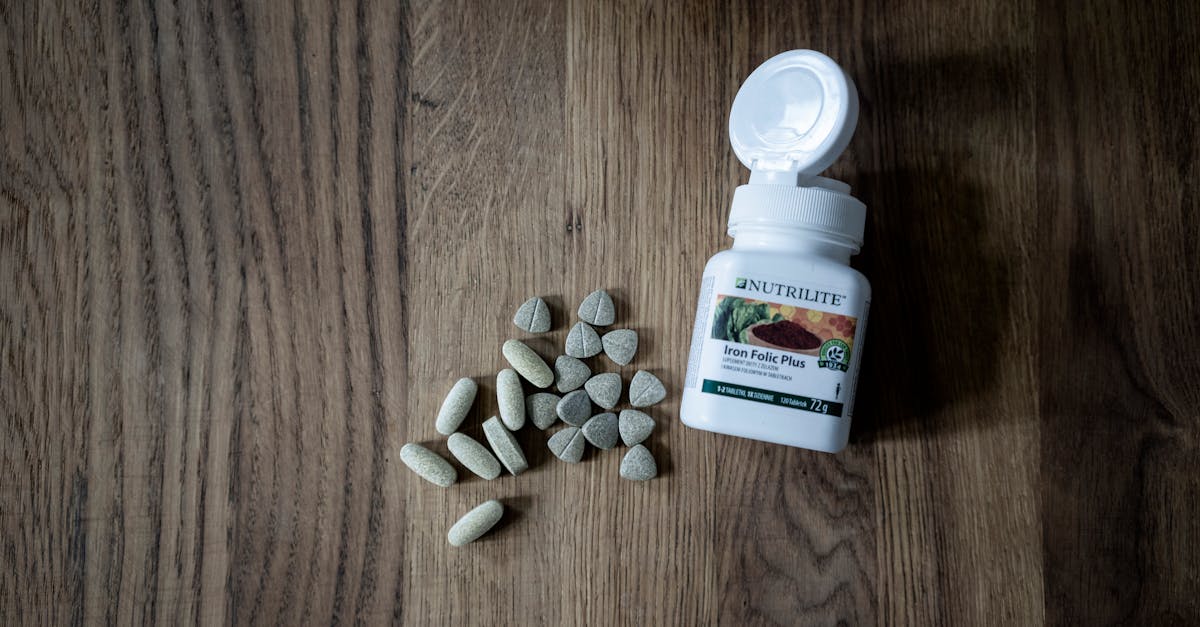Table of Contents
ToggleAfter nine months of nurturing a tiny human, many new moms find themselves feeling like a deflated balloon—exhausted and low on energy. Enter iron supplements, the unsung heroes of postpartum recovery. With the right dose of iron, new mothers can boost their energy levels and kick fatigue to the curb, all while juggling diapers and midnight feedings.
Importance of Iron Supplements Postpartum
Iron supplements play a critical role in postpartum recovery. Supplementing iron can significantly enhance energy levels, helping new mothers combat fatigue.
Role of Iron in Postpartum Recovery
Iron supports the production of hemoglobin, which carries oxygen in the blood. Increased oxygen levels lead to improved energy and overall vitality. Many women experience blood loss during childbirth. This loss often depletes iron levels in the body, making supplementation vital for restoring health. Iron aids in replenishing depleted stores, allowing new mothers to feel more energized. Supplementation can also enhance mood stability, which is essential during the emotional adjustments after childbirth.
Risks of Iron Deficiency
Iron deficiency poses several health risks for postpartum women. Fatigue increases, affecting daily activities and overall well-being. Weakness can develop, making it tough for mothers to care for their newborns. Iron deficiency may also lead to anemia, a condition requiring medical intervention. Symptoms include persistent tiredness, irritability, and cognitive fog. It’s vital to monitor iron levels during this period. Early detection and treatment can prevent complications that affect maternal and infant health.
Types of Iron Supplements
Several types of iron supplements cater to postpartum needs. Each option offers unique benefits for new mothers experiencing low energy levels or iron deficiency.
Ferrous Sulfate
Ferrous sulfate is one of the most common iron supplements. It contains about 20% elemental iron, effectively raising iron levels in the body. Many healthcare providers recommend it due to its widespread availability and affordability. This supplement often comes in tablet or liquid form, making it easy to take. Possible side effects include gastrointestinal upset, which some users may experience during initial doses.
Ferrous Gluconate
Ferrous gluconate is another popular choice among postpartum mothers. This variant contains around 12% elemental iron, offering a gentler option for those sensitive to other forms. Easy to digest, ferrous gluconate can help reduce gastrointestinal discomfort while still effectively increasing iron levels. It generally comes in tablet form and may be preferred for long-term use due to its milder effects.
Iron Bisglycinate
Iron bisglycinate is a chelated form of iron that shows excellent absorption rates. This supplement contains approximately 20% elemental iron and delivers fewer gastrointestinal side effects. Many mothers appreciate that iron bisglycinate promotes higher bioavailability compared to other forms. It typically comes in capsules or tablets, providing flexibility in supplementation for postpartum recovery.
Benefits of Iron Supplements Postpartum
Iron supplements offer significant advantages for new mothers during their recovery. They contribute to enhanced energy and better overall health.
Improved Energy Levels
Increased iron intake helps combat fatigue that often follows childbirth. Iron supplements support hemoglobin production, allowing for more efficient oxygen transport in the body. Mothers experience less fatigue as their iron levels rise, leading to improved stamina throughout the day. Consistent use of iron can also mitigate the tiredness stemming from blood loss during delivery. As women regain energy, they manage their daily responsibilities with greater ease. Enhanced vitality results from adequate iron levels, allowing mothers to feel more like themselves.
Enhanced Immune Function
Iron supplements also strengthen immune function, which is crucial for new mothers. Sufficient iron levels help produce immune cells that fight off infections. By preventing iron deficiency, mothers can support their body’s natural defenses better. Postpartum periods often leave women vulnerable to illness, making iron essential for maintaining health. Iron not only boosts energy but also safeguards against potential health complications. Improved immune response enables mothers to care for themselves and their newborns more effectively. Overall, iron supplements play a vital role in promoting both energy and immune health in postpartum recovery.
Potential Side Effects
Iron supplements can sometimes cause side effects that postpartum women should be aware of. Awareness allows for better management of any adverse reactions.
Gastrointestinal Issues
Gastrointestinal issues often arise with iron supplementation. Symptoms such as constipation, nausea, and stomach cramps occur in some users. Ferrous sulfate, which is widely used, frequently leads to these complaints due to its high elemental iron content. Alternatives like ferrous gluconate may reduce discomfort, offering a gentler option. Taking iron supplements with food can alleviate these side effects. Many find that adjusting the dosage or switching to a different type provides relief while still ensuring adequate iron intake.
Allergic Reactions
Allergic reactions, although rare, can happen with iron supplements. Symptoms may include rash, itching, or swelling, primarily around the face and throat. Immediate medical attention is crucial if such symptoms appear. Ingredients in certain formulations can trigger these reactions, emphasizing the importance of checking labels. New mothers should consult healthcare providers before starting any supplement to ensure safety and compatibility. Personal health history plays a key role in identifying potential allergies to iron supplements.
Conclusion
Iron supplements are essential for new mothers navigating the challenges of postpartum recovery. By addressing iron deficiency, these supplements can significantly improve energy levels and overall well-being. With options like ferrous sulfate, ferrous gluconate, and iron bisglycinate available, mothers can choose the best fit for their needs while minimizing side effects.
Consulting a healthcare provider is crucial to ensure the right supplement is chosen and to monitor iron levels effectively. Prioritizing iron intake not only aids in recovery but also supports the health of both mother and baby during this critical time. Embracing the right supplementation can empower mothers to thrive as they adapt to their new roles.







